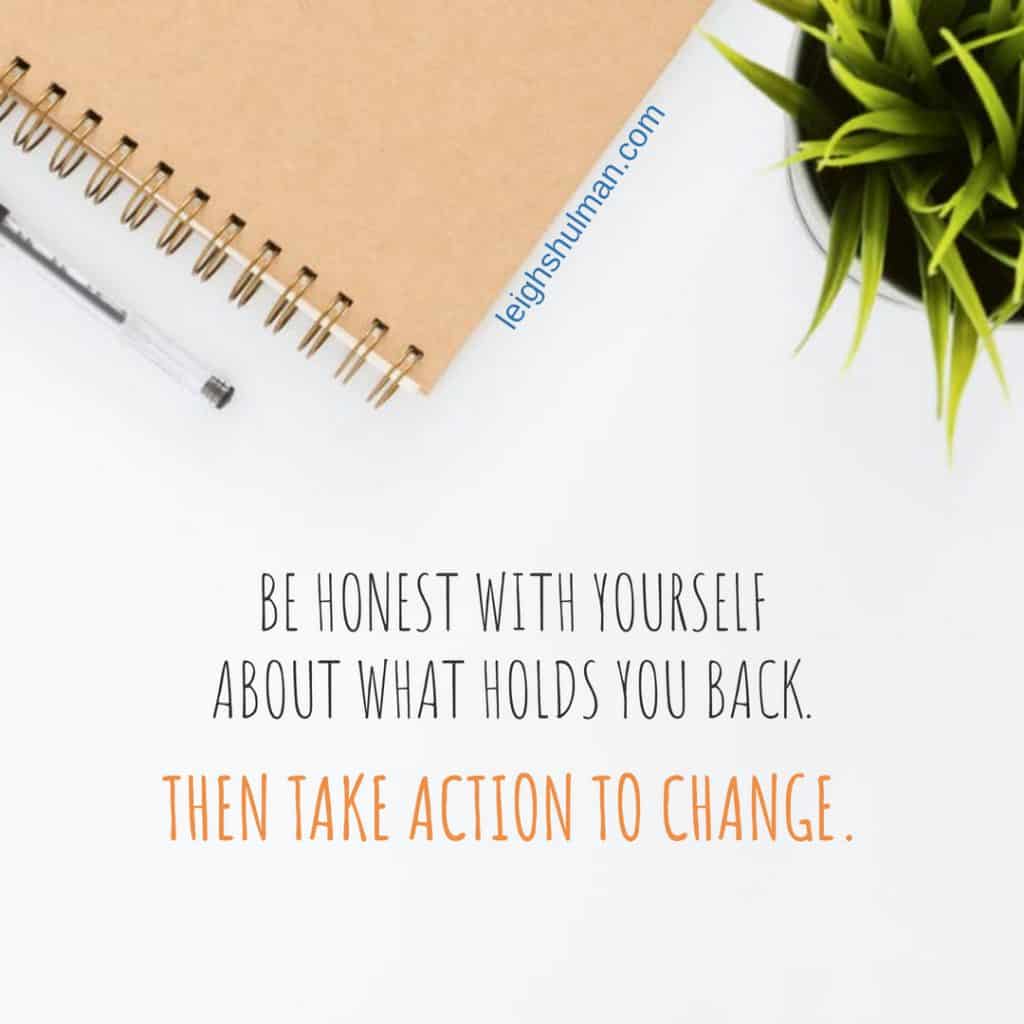When it comes to getting your work out there, the formula is pretty simple:
If you don’t write
If you don’t finish
If you don’t submit
If you don’t ask
If you don’t promote
???? If you don’t do the work… you won’t get published or paid for your writing.
Does this sound like you? I know it’s me sometimes. But it’s OK, because it’s never too late to start new habits!

Strengthen your writing practice by doing the work with 3 goals (and that’s it!)
Recently, I felt frustrated because I hadn’t published any new articles in a while (outside of my blog), but the truth it was my fault. For starters, I wasn’t consistent about doing the work of pitching ideas to magazines. Plus, scoring new bylines is always rewarding, but it wasn’t a primary goal.
What do I mean by that?
In my book, The Writer’s Roadmap, I talk about creating a plan for your writing life with no more than three clear writing goals.
I also explain that you won’t do the work if you have more than three goals. That’s why when I created my OGSM Writer’s Roadmap, I decided to focus on two things.
- Building The Workshop, my online writing community. (It’s not for everyone, but you’re all welcome!)
- Writing my book, a sci-fi YA novel that takes place 5,000 years into the future in Argentina.
Here’s an excerpt from The Writer’s Roadmap to help you better understand why you only need three goals:
“If you’re anything like me and my clients, you’ll have many more categories and projects than just your three top goals. You’ll probably also want to tackle everything at the same time.
I warn you now. Don’t do it.
The human brain can grasp only so many ideas at once. After that, we become overwhelmed and stop retaining information. According to a study from the University of Oregon, our brains don’t hold memories and events beyond four at a time.
Simplify your life and give yourself an edge to succeed by focusing on only three goals at a time. You’ll be more likely to focus and finish your projects, which in turn leads you more quickly to your objective. Plus, these are the three things that excite you most, so you’ll spend your time writing what you love! Total bonus!”
The only exception to the Three Goals rule is when you’re writing a book. Then, I suggest you have only one main writing goal — your book.
When it comes to new ideas, I can be like a dog in a park filled with squirrels. I want to do everything and often trick myself into thinking a new project won’t take much time. I also feel so inspired in those moments, so I know how hard it is to limit your focus.
But we have to make choices. I can’t do everything at one time, and neither can you — nor should we expect ourselves to. However, we can focus, finish, ship and move onto the next step.
If you repeat this process, you’ll be amazed at how much you accomplish.
So, you know my first two goals — in case you’re wondering, the third is my family. What are your big three?

If getting published in magazines ASAP is one of your main goals…
Then, you have to do the work it takes to make it happen. After all, remember the only way to get to the next step is to first finish what you’re doing now.
It also means steering clear of things you’d like to do but aren’t prioritizing. Like me, if pitching editors for articles so you can make money and get published within the next couple of months isn’t part of your publishing plan, then don’t do it.
???? Focus on finishing your top three projects — when they’re finished, you can create a new set of goals.
I encourage you to define “doing the work” to suit your writing goals. For some writers, doing the work means querying tons of literary agents, and for others, it means to pitch editors or shop around a piece they wrote and love.
There’s no right or wrong way to do the work — as long as you’re doing it.
While this process may look different for everyone, what remains the same are effort, consistency and showing up, even on the days you’d rather curl up on the couch and watch a movie.
What if publishing is a top goal but you’re still not published?
This happens to more writers than we’d care to admit. But to do anything well or succeed in life, consistency is key.
And speaking of consistency, I have two questions:
- Are you doing the work you need to do to get published?
- Are you writing and submitting work that suits the publication or publishing house of your choice?
If you want to publish and you’re not publishing at all, well, it’s likely you answered the above questions with, “No” — i.e., you’re not doing the work.
Another piece of advice? Keep a positive mindset. Tell yourself you will publish as long as you keep going. A positive attitude alone won’t get the job done, but according to behavioral psychologist James Clear, “Research is beginning to reveal that positive thinking is about much more than just being happy or displaying an upbeat attitude. Positive thoughts can actually create real value in your life and help you build skills that last much longer than a smile.”
???? Just some food for thought.
Luckily, the solution to not getting published is easy: Do the work! Even knowing every literary agent and editor in your city won’t get you out of doing the work. It might open more doors, but you’ll need writing to present to them before you walk in the door.
Doing the work looks different for writers publishing short stories, fiction, nonfiction or longform articles, but the main idea stays the same no matter your genre: Research, read, write, submit, pitch.
If you do the work, you’ll get published. It really can be that simple.
What if you do the work and still don’t see your desired results?
That means it’s time to tweak your process.
Be honest with yourself about what’s holding you back, then figure out a creative solution to do something about it. Writing isn’t always rigorous and black-and-white, but the business of writing certainly is — to navigate it, take clear actions that’ll move you closer toward your goals. If and when you run into obstacles, accept the challenge and find ways through them.
Here are some resources to answer your questions and get you started on the road to publishing. Start with one (or all of them!) and incorporate them into your practice of doing the work.
Write and publish books:
- Read my 8-step writing process to do just that.
- Learn how to turn your Shitty First Draft into a book.
- Submit your book to a publisher.
- See what publishers and agents are looking for with the #MSWL hashtag
Pitch and submit articles:
- How to start your freelance writing career
- How to write a compelling pitch
- Copywriting for cash flow
Do the work and make a clear plan for your writing:
- Get clear on your writing goals
- Run your writing like a business
- The two-step method to raise your chance of success by 95%
- Get your own copy of The Writer’s Roadmap and dive deep into your own writing plan
(Available on Kindle or in paperback) - Try my course: Create Your 4-Step Writer’s Roadmap
Find a community to support you as you write:
- Join a writing group
- Learn how to get the most out of a writing community
- Join The Workshop, my online writing community, to create a writing plan and make it happen.
Improve your writing practice:
- Use journaling to flesh out ideas and characters, or to strengthen your writing
- When you can’t write every day, here’s how to build a writing practice that helps you do the work
- Take a writing course or two
- Learn how to write productively
- Conquer your writer’s block

